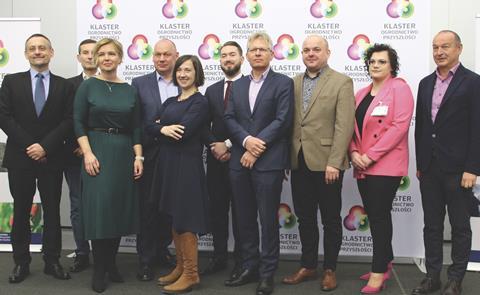Polskie Jagody’s Dominika Kozarzewska talks about the company’s expanding range, diversifying markets and the formation of the new Horticulture of the Future Cluster
Where has your focus been as you head into 2025?

Dominika Kozarzewska: In the production area, the replacement of blueberry varieties has gained momentum. We plan to replace about 40 per cent of plantings within three years, with new varieties offering better firmness, crunch and shelf-life.
We recently expanded our product range with blackberries and raspberries for the fresh market. We are also intensively testing new varieties of strawberries, raspberries and blackberries, in partnership with other growers.
Which categories do you concentrate on?
DK: Our flagship product is and will continue to be blueberries, including organic. We have almost 50 years of experience growing this fruit, and we export it to over 20 markets.
We are also producing fresh-market strawberries, and with the addition of tunnel cultivation of raspberries and blackberries, we now offer a complete berry patch of the highest quality. We pre-chill our produce within 30 minutes of picking, so it retains the flavour and qualities of freshly picked fruit.
2024 was a challenging one for us in terms of the blueberry crop, due to frost losses, but other fruits performed very well. We also import blueberries to the Polish market outside of our season and provide optical sorting and berry packing services using top-quality infrastructure.
Where are your key export markets?
DK: Our most important customers are European countries, but we are constantly striving to diversify our sales. Before the pandemic, we were successfully selling blueberries to Southeast Asian markets, and we are now returning to those countries.
Polish blueberry producers have gained new opportunities with the opening of the Indian and Vietnamese markets. Trade with Middle Eastern countries is also developing well.
On a more local level, our cooled berry vending machine is becoming increasingly popular with the neighbouring community.
What are some of the biggest challenges you face?
DK: The impact of climate change on agriculture cannot be overstated. In 2024, we were strongly affected by May frosts, reducing blueberry fruit yields. Therefore, in 2025 we are heavily investing in anti-frost wind machines.
How is the development of technology helping your company?
DK: We are testing and implementing many new solutions in data collection and decision support, production automation and renewable energy.
We believe that today only innovation allows you to remain competitive in the berry market. That is why we are founding members of the Horticulture of the Future Cluster, formed by growers and research institutions. The goal of the Cluster is to support members in R&D projects and create a Horticultural Innovation Hub.



